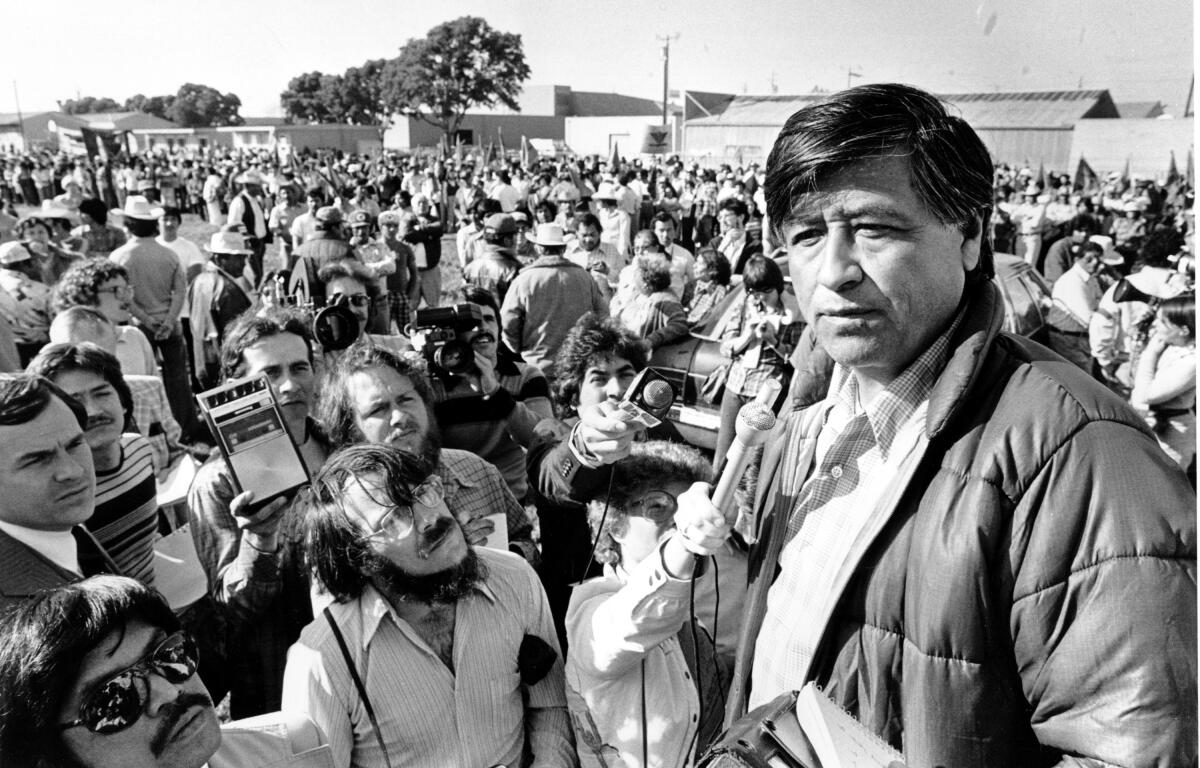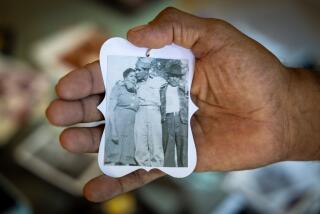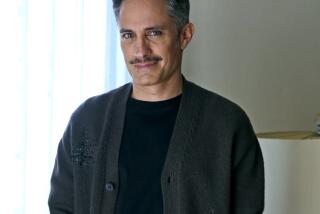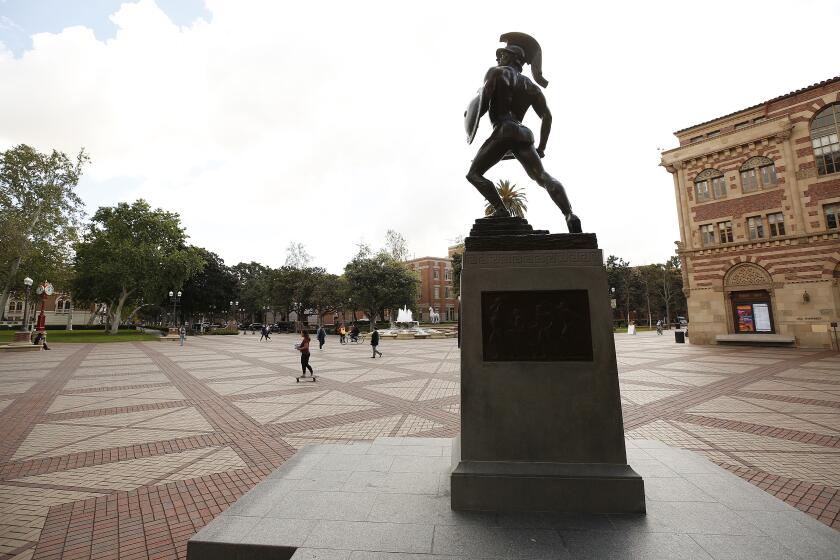Letters to the Editor: Why does Cesar Chavez get a ‘cancel culture’ pass?

To the editor: Across the country statues are being torn down and school names are being changed as “heroes” of the past are canceled because of the flaws that made them imperfect.
Columnist Gustavo Arellano cites Cesar Chavez’s multiple transgressions and shortcomings, but then gives him a pass because this “hero was a man. And that Man, invariably, is no saint.”
Is this an example of cancel culture inequality?
Glynn Morris, Playa del Rey
::
To the editor: We owe Mr. Arellano a word of thanks for urging us to weigh a hero’s achievements against his faults, rather than immediately dismissing him.
Having worked in the fields on my parents’ farm since age 8 — and knowing what hot, miserable work farmworkers do — I have admired Cesar Chavez for years. He had serious faults, but I still admire him.
Jesus said: “Let the one who is without sin cast the first stone.” Only perfect people have the right to demand perfection in others.
Looking more closely at Chavez’s record, we may also discover the little-known fact that he championed animals, and was a vegan out of compassion. That fact should be weighed in his legacy as well.
Gracia Fay Ellwood, Diamond Bar
::
To the editor: Thank you for this wise article. We live in such iconoclastic times. Is it because lesser beings envy the courage of the greater.
Emily Dickinson wrote:
We never know how high we are
till we are called to rise
and then if we are true to plan
our statures touch the skies.
The heroism we recite
would be a daily thing
did not ourselves the cubits warp
for fear to be a king.
Eric Searcy, Los Angeles
::
To the editor: School names are currently being changed because the old ones don’t fit our current state of enlightenment and social consciousness.
I remember the farmworkers’ call to boycott the sale of grapes in the 1970s. Though I still bought them, I thought about the hands that had picked them and how they got to my table. In this Easter season, it’d be good to remember these words — “Those without sin cast the first stone.”
Elsa Frausto, Tujunga
More to Read
A cure for the common opinion
Get thought-provoking perspectives with our weekly newsletter.
You may occasionally receive promotional content from the Los Angeles Times.










